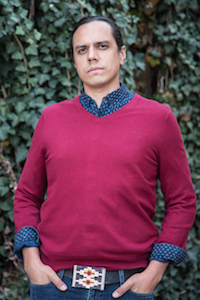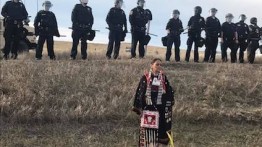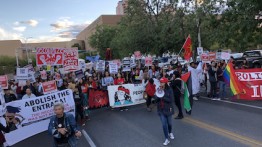Nick Estes, "Indigenous Resistance in an Era of Climate Change"
Tuesday, February 26, 2019, 7 - 8:30pm
Nick Estes delivers a free, public lecture as part of the Intra-Disciplinary Seminar series about insights from the book Our History is the Future. The book examines Indigenous spaces of anti-colonial resistance in the city, the countryside, and the reservation. From police violence to extractive industries, each is deeply connected to environmental justice. A closer look at Native movements shows how deeply connected urban and rural spaces are to decolonization in North America.
Nick Estes is Kul Wicasa from the Lower Brule Sioux Tribe, an Assistant Professor of American Studies at the University of New Mexico, and a co-founder of the Red Nation, an organization dedicated to Native liberation. He is the author of the forthcoming book Our History is the Future: #NoDAPL, Standing Rock, and the Long Traditions of Indigenous Resistance (Verso, 2019), and edited with Jaskiran Dhillon the forthcoming volume #NoDAPL and Mni Wiconi: Reflections on Standing Rock (University of Minnesota, 2019).
The Spring 2019 IDS Lecture Series at The Cooper Union is organized by Leslie Hewitt and Omar Berrada. The IDS Public Lecture Series is part of the Robert Lehman Visiting Artist Program at The Cooper Union. We are grateful for major funding and support from the Robert Lehman Foundation for the series. The IDS Public Lecture Series is also made possible by the New York State Council on the Arts with the support of Governor Andrew M. Cuomo and the New York State Legislature.
Photo of Nick Estes by Melanie K. Yazzi.
Located in the Frederick P. Rose Auditorium, at 41 Cooper Square (on Third Avenue between 6th and 7th Streets)






